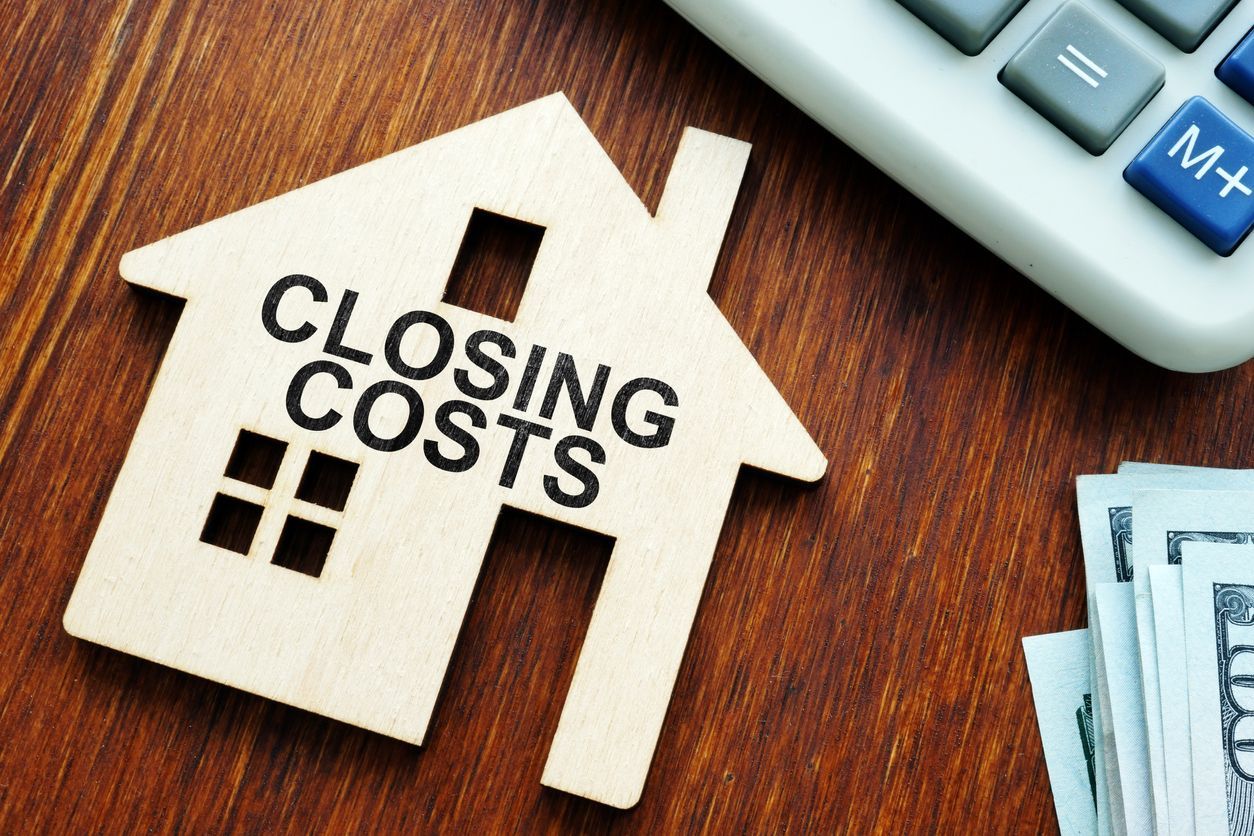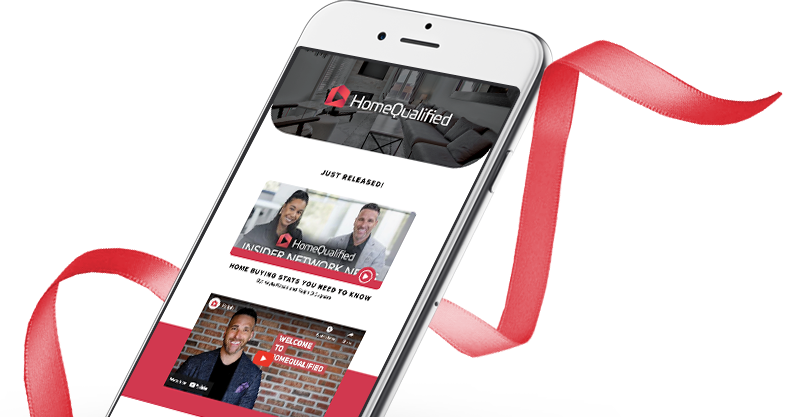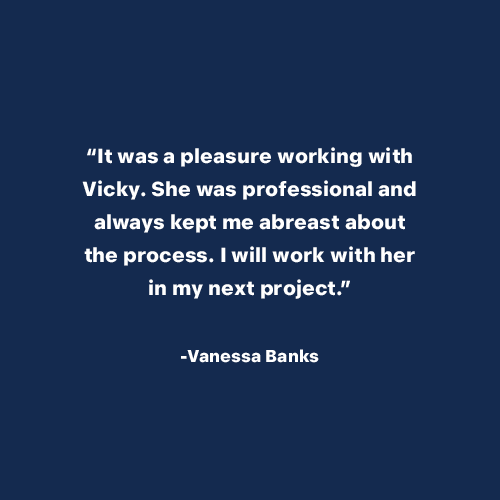YOUR TRUSTED
REAL ESTATE RESOURCE
We curate education on the latest and most common real estate topics for the buyers, sellers and real estate agents driving today’s millennial market.
EXPLORE the most recent
articles & vlogs

Laura Gariepy Updated Fri, December 12, 2025 at 5:02 PM EST 8 min read You’ve found a home in your dream neighborhood, but there's one problem: It needs expensive updates and repairs. Given the property's condition, you’re unsure if you’ll be able to get a mortgage to buy it. Unfortunately, you don’t have enough cash to purchase the home outright, let alone complete all the necessary renovations. An FHA 203(k) loan may be the answer. With this type of FHA loan, you can secure the financing you need to buy (and rehabilitate) your new home. MORE: See our top picks for FHA loan lenders. What is an FHA 203(k) loan? An FHA 203(k) loan is a type of FHA loan, which is insured by the Federal Housing Administration (FHA) and allows you to finance a home purchase and renovation with just one loan. Instead of taking out a mortgage to buy the home and a second loan to cover updates and repairs, you’ll get all the funding you need on one closing day. If you qualify, part of the loan will immediately pay the seller for the residence. The remaining cash will be put into an escrow account to be disbursed as repairs are made to the property. The loan is FHA-insured before renovations are completed. Standard vs. limited FHA 203(k) loans You can choose between two kinds of FHA 203(k) loans: standard and limited. Here’s how they compare at a glance: How to use an FHA 203(k) loan Depending on your home’s needs and the type of FHA 203(k) loan you secure, you can use mortgage proceeds to do the following: Address health and safety issues Build or repair a garage Add rooms to the structure, including an attic or basement Repair the foundation or other structural elements Install or repair fencing, walkways, driveways, patios, decks, or porches Fix or install roofing, siding, gutters, or downspouts Repair, replace, or upgrade electrical or plumbing system components Repair or remove an in-ground swimming pool Make the home accessible to those with disabilities Rebuild a demolished home (if the original foundation is intact and usable) The above list isn’t exhaustive. Generally, most renovations intended to increase the safety and functionality of the home would be deemed acceptable. However, you can’t use this loan for luxury upgrades like installing a new swimming pool or tennis court. Learn which home improvements are tax-deductible. FHA 203(k) loan requirements Property guidelines You can use an FHA 203(k) loan to purchase and renovate the following types of properties: Single-family homes Two-to-four-unit townhouses Some condominiums (interior renovations only) HUD homes Manufactured homes titled as real estate (no structural repairs) Mixed-used properties (at least 51% must be residential) Discover 12 types of homes for buyers and renters. Borrowing limits The FHA has loan limits that cap the amount you can borrow. The limit depends on your property type, value, and location. For instance, in 2026, you can borrow up to $541,287 for a one-unit property in a low-cost area or $2,402,625 for a four-unit building in a high-cost area. (You may qualify for even higher limits if you live in Alaska, Hawaii, Guam, or the U.S. Virgin Islands.) Once repairs are complete, you must get an FHA home appraisal to determine the after-improved value. Borrower guidelines The FHA requires a credit score of at least 500 to qualify for a 203(k) loan, but your lender’s criteria may be more strict. In addition, FHA mortgage lenders generally want to see a debt-to-income ratio (DTI) — how much you owe monthly relative to how much you earn — of 43% or lower. If your credit score is 580 or higher, you can put down as little as 3.5% of the loan amount. However, if your score is 500 to 579, you must increase your down payment to 10%. How do FHA 203(k) loans work? An FHA 203(k) mortgage loan can have up to a 30-year term. You can also opt for a fixed or adjustable interest rate. “Interest rates are slightly higher than regular FHA loans due to the higher propensity for risk,” Tiana Uribe, real estate broker at TRU Financial Services, Inc., said via email. Your loan can also include extra funds for unexpected costs (known as “contingency reserves”) and mortgage payments. Your contingency reserve can be up to 20% of your projected repair costs. Your mortgage payment reserve can cover up to six months of home loan bills if you can’t live in the house during renovation. Like any other mortgage, expect to pay closing costs. For instance, you’ll be charged an origination fee of up to $350 or 1.5% of the base loan amount, whichever is greater. You should also be prepared to pay an up-front mortgage insurance premium (MIP) of 1.75% of your initial loan balance. You’ll also pay an annual mortgage insurance premium (billed monthly) must be paid on an ongoing basis — generally for the life of the loan. Property rehabilitation must start within 30 days of closing and be completed within six months. However, if you’re current on your mortgage payments or your loan is in forbearance, you may be able to request an extension if the project runs long. “The money [in escrow] for repairs will be given out in draws — an initial draw at closing and then additional draws throughout the process as the work is completed and signed off on by the HUD consultant,” said Ralph DiBugnara, founder of Home Qualified. Pros and cons of the FHA 203(k) loan All financial products have perks and pitfalls. Here’s how the FHA 203(k) loan stacks up: Pros You can finance the purchase and renovation of the home with one loan. The mortgage typically has a lower interest rate than a credit card or unsecured personal loan. The renovations help you build equity quickly. The loan is relatively easy to qualify for. You can put down as little as 3.5%. Cons The process can be long and complicated. (It takes longer to close on this type of loan than a regular FHA mortgage.) You may have to live in a construction zone for an extended period. Renovations must be HUD-approved, which can limit your options. You must pay for FHA mortgage insurance. The loan isn’t designed for real estate investors. Should you get an FHA 203(k) loan? “We are in a real estate market that overall has very little inventory,” said DiBugnara. “A large percentage of homes that are on the market are old and in need of at least [some] TLC. Most buyers are compromising because of high prices and bidding wars on homes that aren't ideal for their needs. A 203(k) loan is a great way for a borrower to buy a house that needs repairs and make it into their own.” On the other hand, if the complexity and length of the process make you nervous, buying a fixer-upper with an FHA 203(k) loan may not be your best bet. You may also want to consider other types of renovation loans if you want to finance a new swimming pool or other luxurious upgrades that aren’t covered by 203(k) loans. When will the housing market crash again? Alternatives to the FHA 203(k) loan If the FHA 203(k) rehab loan isn’t right for you, several other financial products can help you upgrade your home. Conventional renovation loans Fannie Mae and Freddie Mac offer the HomeStyle Renovation and CHOICERenovation loan, respectively. The programs are similar in several ways. For example, both permit down payments as low as 3% for single-family residences. However, you should compare these options side by side and talk to your lender to determine which one would work best for you. Home equity products If your fixer-upper just needs cosmetic updates and you can live with the popcorn ceilings and wood paneling for a while, you could eventually tap into your home’s equity to pay for modernization. Your home’s equity is a measure of how much your property is worth minus what you owe on your mortgage, expressed as a percentage. For example, if your house is worth $500,000 and you still owe $300,000 on your mortgage, you have 40% equity. Generally, you need 15% to 20% equity to qualify for a home equity product. It could take years to reach that milestone, depending on how large a down payment you made at loan closing. Once you do, you could take out a home equity loan (which gives you a lump sum with a fixed interest rate) or a home equity line of credit (which functions like a credit card and typically has a variable interest rate). You might also opt for cash-out refinancing, which involves obtaining a new mortgage large enough to pay off your first home loan and put money for renovations in your pocket. FHA 203(k) loan FAQs Can you refinance a home with an FHA 203(k) loan? Yes, homeowners can refinance a home with an FHA 203(k) loan. However, while you can change your interest rate or loan term, Uribe said you won’t be able to tap your equity and take cash out. Can I use an FHA 203(k) loan for a new home? Although you can use an FHA 203(k) loan to buy an existing home that needs upgrades, you cannot use an FHA 203(k) loan to finance the construction of a new home. The mortgage is designed to help borrowers repair and upgrade homes that are at least one year old. Can you buy furniture with an FHA 203(k) loan? You can’t buy furniture with an FHA 203(k) loan. FHA-approved purchases and projects must be directly connected to the house and improve the functionality of that particular dwelling.

By Julie Gerstein October 22, 2025 Real Estate Is Still a Good Investment: How It Stacks Up Against Gold, Bitcoin After soaring to new highs just as the U.S. government entered its first shutdown in almost seven years, gold prices slid back down by just over 5% on Tuesday to around $4,130. Some experts still look at the precious metal as a solid investment, while others warn this is why investing in assets like real estate is a smarter move. Though high mortgage rates are making it more expensive to buy a home right now, many experts still believe that real estate beats out other investment opportunities. And with President Donald Trump signing an executive order allowing alternative assets such as private equity, cryptocurrencies, and real estate into workplace retirement plans, the market is still a better investment. In fact, according to Gallup, 37% of Americans still agree that real estate is the best long-term investment, with only 23% saying gold and 16% relying on stocks. If all of these options leave your head a bit scrambled about where to put your money, you're not alone. Some areas of investment, like art, require specialized knowledge, while others depend on how much risk you're willing to take. With real estate in particular, many homeowners are sitting on record-high equity, which can be used through a home equity loan or a home equity line of credit (HELOC) to purchase an investment property, according to Hannah Jones, senior economic research analyst at Realtor.com®. "However, investing in real estate is not a slam-dunk in all markets as high home prices and elevated mortgage rates squeeze potential earnings," she points out. "Investors, or homeowners looking to branch out into buying an investment property, should fully understand expected cost and expected income from a property, as well as the time horizon to see a profit." Here's how real estate stacks up against other investments. Buying real estate Pros: Real estate values have grown at a slower pace than the S&P 500 on a year-over-year basis, but according to a Realtor.com analysis, real estate saw an average five-year return of +26% since 1975 as of the end of 2024. That's nothing to sneeze at. Typical homeowners have also accumulated at least $147,000 in housing wealth in the past five years, according to the National Association of Realtors® in its fourth quarter of 2024 report. "Traditional investments like 401(k)s, IRAs, and ETFs are great for passive growth, but real estate brings in a whole different level of wealth-building," says Dan Reedy, a real estate investor and broker. Real estate is also a much more hands-on investment. "With real estate, you can actively influence your returns by making strategic upgrades or managing rental rates," he adds. "Plus, real estate offers deductions—mortgage interest, depreciation—that can make a huge difference come tax season. It's not just about growing wealth; it's about growing wealth you can control." Sara Levy-Lambert, vice president of growth at real estate management company RedAwning, adds that although real estate is not without risks, its "blend of passive income potential, stability, and the chance to build equity over time make it a solid choice for those looking to diversify beyond paper assets." Cons: If you value liquidity and being able to access your funds at a moment's notice, it's probably not the right move for you. Buying and selling homes can take months—if not years—and can require a lot of upfront costs. "The biggest problem I see is that people have record equity in their home right now—more than they've ever had before. But that's just a number on paper," says Ralph DiBugnara, founder of real estate resource site HomeQualified. "You can't really do anything with it unless you're willing to take [money] out of the house, unless you're willing to leverage it." By that, DiBugnara means being able to leverage a home equity loan or home equity line of credit. Investing in real estate directly "gives you full control—you decide on tenants, renovations, and how it's managed. But you also take on the costs and responsibilities that come with ownership," says Jace Graham, CEO of Rising Phoenix Capital. Real estate investment trusts Pros: When you think of real estate investing, you're likely picturing putting a down payment on a home and negotiating the terms of a mortgage. But if you can't afford to build a personal portfolio of investment properties, that shouldn't discourage you from buying into the market. Many do so by participating in real estate investment trusts, or REITs. REITs allow investors to buy shares in a real estate company. Their portfolios typically include a mix of residential and commercial properties. "You don't own the property directly, so you're hands-off, which is easier for most people," Levy-Lambert says. "They're also traded like stocks, making them more liquid. Just buy or sell whenever you want, without the management headaches." The IRS requires REITs to pay out at least 90% of their income as dividends to shareholders, so investors have a steady flow of funds coming in. It's also taxed as regular income. "In a nutshell, direct real estate gives you control and potential tax perks but requires more work and patience, while REITs offer easy, flexible access to real estate returns without the management hassle but are taxed a bit differently," says Levy-Lambert. A REIT also might be a great place to start if you haven't saved up enough for a down payment but want to make a steady return on the market. Cons: REIT dividends are generally taxed as ordinary income—not at the lower capital gains rate. The average annual dividend yield for publicly traded REITs currently hovers around 4%, though this can vary by sector and market conditions. Cryptocurrency Pros: There's big money to be made—or lost—in the cryptocurrency market at the moment. Bitcoin initially traded at $0.00099 in 2009, but today it's over $88,000, and early investors who have held on have made many millions of dollars. The current presidential administration is also very invested (pun intended) in making crypto more accessible. Cons: Of course, investing in cryptocurrency comes with many risks. Aside from the many crypto-related scams, including the spectacular collapse of Sam Bankman-Fried's FTX, you might need nerves of steel to play in this market. "Cryptocurrencies are notoriously volatile, subject to speculation, and witness frequent bubbles and crashes," says Harry Turner, founder of Sovereign Investor. "That's why cryptocurrencies are really only suitable for individuals with a high risk tolerance and an understanding of the underlying technology, which can be complex. Real estate doesn't have this problem." Gold Pros: These days, you can purchase gold stocks or ETFs, or buy the physical stuff—coins and gold bullion. If that's what you're into, you can even buy gold at Costco now. For some, nothing beats the security of owning a chunk of precious metal. Gold is a relatively stable asset. It's less reactive and can be a good hedge against the volatility of the market. In the four years following the 2008 financial crash, the price of gold increased dramatically—in 2011 alone, by 32.8%. Fast-forward to today, and the price of pot gold is on a bit of a roller coaster. After hitting an all time high price of $4,225.10 per ounce in early October, the prices started to plunge by the following week, falling as much as 6.3% soon after, marking the largest intraday drop for the metal since a 6.3% plunge in June 2013, according to Forbes. The strength in gold follows the implementation of many of Trump's tariffs on Aug. 8, including surprise levies on 1 kg and 100-ounce imported gold bars. The import charges on gold bars could disrupt shipments from primary refining hubs, including Switzerland, London, and Hong Kong. Cons: Though you can buy gold at Costco, you can't sell it through the store. In fact, it's fairly difficult to sell gold commercially—and you'll have to do a good bit of research to get a fair price. Let's be real: Physical gold weighs a ton, and it's not the easiest thing to move around. Plus, you’ll want to insure it, which will cost you additional money, and there are higher taxes on physical gold. So if you sell, you’ll have to pay a capital gains tax of up to 28% on any profit. (The typical capital gains on stocks and bonds is 20%.) Investing in other types of tangible assets Pros: Relatively niche markets allow investors to dig into the things they love, be it art, cars, or wine. Cons: There's a high barrier to entry in some of these particular markets—not just financially, but in terms of knowledge. For example, the classic car collectible market is fairly exclusive and, as an investment category, it might not be very practical either because every time you use one of these collectibles in your portfolio, you run the risk of lowering its value. Alternative assets can be exciting and sometimes profitable, but they come with extreme volatility. The wine market, for instance, is affected not just by the collector market but also by the agricultural outlook and weather conditions. These markets don't necessarily move quickly, either. As interest ebbs and flows in different types of asset classes, so do potential moneymaking opportunities. "Look at crypto. Bitcoin, for instance, went from $60,000 to $20,000 in under a year," says Reedy. "The occasional blue-chip wine or NFT might pay off big, but real estate lets you sleep at night while building long-term wealth." No matter what you choose to invest in, you should talk to your financial adviser about what types of investments are right for you. Dina Sartore-Bodo contributed to this report.

By: Ralph DiBugnara on October 8, 2025 First-Time Home Buyer Advice: Fourth Quarter 2025 By Paul Centopani Reviewed By Aleksandra Kadzielawski October 7, 2025 - 9 min read https://themortgagereports.com/122882/first-time-home-buyer-advice-q4-2025 Expert guidance for first-time home buyers The housing market can be a tough and sometimes confusing place to navigate — especially for first-time buyers. Home buying conditions are in a constant state of flux, shifting over time and by geography. Strained affordability pushed many prospective home buyers to the sidelines in recent times. However, conditions are improving in many places around the country. To gain insights and (hopefully) make matters easier, The Mortgage Reports spoke with industry experts to help guide borrowers in 2025’s fourth quarter. Answers may have been edited for brevity and clarity. This year’s fourth quarter market is different because of a combination of lower mortgage rates as well as a year of decreased real estate sales. Almost all markets have seen a reduction in homes sold compared to 2023 and 2024. Buyers have gotten priced out because of a lack of homes for sale and unaffordable payments based on elevated interest rates. In September, mortgage rates hit their lowest levels of 2025 and it’s starting to reignite buyers coming to market. That, plus an increase of refinances, means more cash to buy and gives a busy outlook for the quarter. Create a budget and stick to it. There are still not enough homes for sale to meet demand if mortgage rates drop much lower. The demand will increase and bidding wars will be upon us again. It’s important to not overpay for a house that isn’t yours out of fatigue from multiple rejected offers.

By: Ralph DiBugnara on October 8, 2025 First-Time Home Buyer Advice: Fourth Quarter 2025 By Paul Centopani Reviewed By Aleksandra Kadzielawski October 7, 2025 - 9 min read https://themortgagereports.com/122882/first-time-home-buyer-advice-q4-2025 Expert guidance for first-time home buyers The housing market can be a tough and sometimes confusing place to navigate — especially for first-time buyers. Home buying conditions are in a constant state of flux, shifting over time and by geography. Strained affordability pushed many prospective home buyers to the sidelines in recent times. However, conditions are improving in many places around the country. To gain insights and (hopefully) make matters easier, The Mortgage Reports spoke with industry experts to help guide borrowers in 2025’s fourth quarter. Answers may have been edited for brevity and clarity. This year’s fourth quarter market is different because of a combination of lower mortgage rates as well as a year of decreased real estate sales. Almost all markets have seen a reduction in homes sold compared to 2023 and 2024. Buyers have gotten priced out because of a lack of homes for sale and unaffordable payments based on elevated interest rates. In September, mortgage rates hit their lowest levels of 2025 and it’s starting to reignite buyers coming to market. That, plus an increase of refinances, means more cash to buy and gives a busy outlook for the quarter. Create a budget and stick to it. There are still not enough homes for sale to meet demand if mortgage rates drop much lower. The demand will increase and bidding wars will be upon us again. It’s important to not overpay for a house that isn’t yours out of fatigue from multiple rejected offers.

By: Ralph DiBugnara on October 2, 2025 By:Julie Gerstein on August 8, 2025 https://www.realtor.com/advice/finance/real-estate-investment-gold-bitcoin/ Gold is glittering in the headlines again. With prices hitting record highs in August—$3,534.10 per ounce, to be exact—many investors are wondering: Is now the time to pivot away from real estate and jump on the gold train? It’s a fair question. After all, gold has long been viewed as a safe haven, especially in times of uncertainty, and with new tariffs shaking up global markets, its value is soaring. But is it really the best place to put your money right now? Let’s break down how gold stacks up against other popular investments—including real estate, cryptocurrency, and alternative assets—to help you decide where your dollars belong. Real Estate: The Long Game Winner? Despite high mortgage rates and steep home prices, real estate continues to shine as a top long-term investment. In fact, a Gallup poll shows 37% of Americans still consider real estate the best long-term investment—more than gold, stocks, or crypto. Real estate’s appeal comes down to three things: Equity Growth: According to the National Association of Realtors®, homeowners gained $147,000 in housing wealth on average over the past five years. Tangible Control: You can actively influence your investment’s value through renovations, rental income strategies, and market timing. Tax Benefits: From mortgage interest deductions to depreciation, real estate offers meaningful tax advantages. "Traditional investments like 401(k)s, IRAs, and ETFs are great for passive growth, but real estate brings in a whole different level of wealth-building," says Dan Reedy, real estate investor and broker. And in 2025, there's a new twist: President Trump recently signed an executive order allowing alternative assets like real estate and crypto into workplace retirement plans, opening the door for more Americans to diversify their retirement portfolios. Still, real estate isn’t without its challenges. "You can't really do anything with [your home equity] unless you're willing to leverage it," explains Ralph DiBugnara, founder of HomeQualified. In other words, that equity is locked unless you’re willing to tap it via a loan or HELOC. Gold: A Glittering (But Limited) Hedge Gold has surged thanks to tariffs on imported bars and rising demand as a hedge against inflation and global instability. Pros: Stability during market downturns Hedge against inflation and currency fluctuations Physical ownership for those seeking tangible assets Cons: High taxes on physical gold (up to 28% capital gains) Low liquidity in physical form—selling takes effort No cash flow—unlike real estate, it doesn’t pay dividends or rent And while buying gold at Costco may be trendy, it’s not exactly practical when it comes time to sell or store it. Cryptocurrency: High Risk, High Reward Bitcoin is booming—again. At over $88,000, it’s hitting new highs. But the crypto market remains volatile and speculative, better suited to thrill-seekers and tech-savvy investors. "Cryptocurrencies are notoriously volatile... Real estate doesn't have this problem," notes Harry Turner, founder of Sovereign Investor. Crypto Pros: Potential for massive returns High liquidity Growing institutional support Crypto Cons: Extreme volatility Security and fraud risks Regulatory uncertainty REITs: A Middle Ground for Real Estate Investors Want to dip into real estate without buying physical property? Real Estate Investment Trusts (REITs) let you invest in real estate portfolios without getting your hands dirty. Pros: Traded like stocks—easy to buy and sell Regular income via dividends (up to 90%) Diversified across property types Cons: Taxed as ordinary income Less control compared to owning property directly Yields (around 4%) can vary by sector REITs are great for those who want exposure to real estate without needing a down payment or dealing with tenants. Tangible Alternatives: Art, Cars, Wine—and Complexity Yes, it’s possible to invest in fine wine, classic cars, or digital art (remember NFTs?). But these markets demand deep knowledge, significant capital, and often... luck. "The occasional blue-chip wine or NFT might pay off big, but real estate lets you sleep at night while building long-term wealth," says Reedy. Pros: Passion-driven investments Potential for high appreciation Cons: Illiquid and niche Highly dependent on market trends Often not recession-proof So, Where Should You Put Your Money? There’s no one-size-fits-all answer. But if you’re looking for steady growth, tangible control, and long-term stability, real estate continues to make a strong case—especially in a world where markets are more unpredictable than ever. Gold may sparkle, and crypto may excite, but real estate endures. As Sara Levy-Lambert of RedAwning puts it, real estate offers a rare mix of passive income, stability, and the potential to build equity—something even gold can’t match. Before You Invest… Always speak with a trusted financial adviser to assess your personal goals, risk tolerance, and investment timeline. Because no matter how hot the market is, smart investing starts with a solid plan. Want help exploring your options in real estate investing? Let me know—I can help you find resources and guides tailored to your situation.

By: Ralph DiBugnara on September 29, 2025 By: Nicole Spector on August 18, 2025 https://www.gobankingrates.com/investing/real-estate/ways-to-reduce-closing-costs-when-buying-home/?utm_term=source_link&utm_campaign=1312675&utm_source=nasdaq.com&utm_content=14&utm_medium=rss If you’re preparing to buy a home, you’ve likely budgeted for the down payment—but closing costs can catch many buyers off guard. These fees cover essential services like appraisals, title searches, and taxes, and they often total thousands of dollars. In some states, they can easily exceed $10,000 when transfer taxes are included. While some closing costs are unavoidable, there are strategies you can use to reduce the amount you’ll need to bring to the table. Here's a breakdown of five practical ways to cut those costs and make your home purchase a little more affordable. 1. Take Advantage of Community Lending Programs Many banks offer community lending programs that provide grants or credits toward closing costs. These programs are designed to support eligible buyers—often based on income level or the location of the home—and the financial assistance does not need to be repaid. For example, Washington Trust Bank offers several programs that can save qualified buyers $1,000 to $2,500 in closing costs. These savings might come in the form of waived underwriting fees or direct credits. It's worth checking with your local bank to see if similar programs are available in your area. 2. Choose the Right Loan Program Your choice of mortgage loan can have a direct impact on how much you pay at closing. Some loan types—like FHA or VA loans—require lower down payments but tend to come with higher closing costs. On the other hand, “A larger down payment or a conventional loan program through Fannie Mae or Freddie Mac may offer a larger overall savings,” said Ralph DiBugnara, founder and president at Home Qualified. It pays to compare loan types and run the numbers with your lender to see what works best for your budget, not just in terms of monthly payments, but upfront costs too. 3. Roll Closing Costs Into Your Mortgage While this option won’t reduce the total amount you’ll pay in the long term, it can ease the immediate financial burden. Many lenders allow borrowers to roll closing costs into their mortgage, effectively spreading the cost over the life of the loan. Here’s how it works: if a home is priced at $250,000 and your closing costs are $7,500, you could finance the total at $257,500. You’ll pay a slightly higher monthly mortgage, but you won’t need to come up with as much cash upfront. Just be sure to discuss this option thoroughly with your lender. 4. Offer to Pay the Commissions This may sound counterintuitive, but paying the real estate commissions yourself can actually result in lower closing costs. That’s because if the seller doesn’t have to factor commission into the sale price, the overall sale price may be lower—which reduces closing costs that are based on the transaction amount. This approach can also have a lasting benefit. Since property taxes are often calculated based on the recorded sale price, a lower recorded price can mean lower taxes for years to come. 5. Look for First-Time Buyer Grants If this is your first time buying a home, you could be eligible for generous grants from lenders and local or federal programs. Some banks, like Bank of America, offer closing-cost assistance for first-time buyers that can be worth several thousand dollars—sometimes up to $7,500. These grants can be game-changers, especially for buyers who are short on cash but otherwise ready to purchase. Be sure to research and compare programs based on your eligibility and location. Final Thoughts Buying a home is expensive—but closing costs don’t have to break your budget. Whether it’s exploring the right loan type, tapping into community programs, or being strategic with your offer, there are ways to reduce these costs and make homeownership more affordable. Don’t be afraid to ask your lender, agent, or bank about options. A few smart moves today can save you thousands tomorrow.
HOME QUALIFIED HAS BEEN FEATURED ON
let us connect you to
investors in real estate
Looking to build a home, buy a fixer upper
& repair or invest in a real estate project long term?
We can connect you to experts who have loan products.

get hq’s hottest insider tips & news articles delivered direct to you







